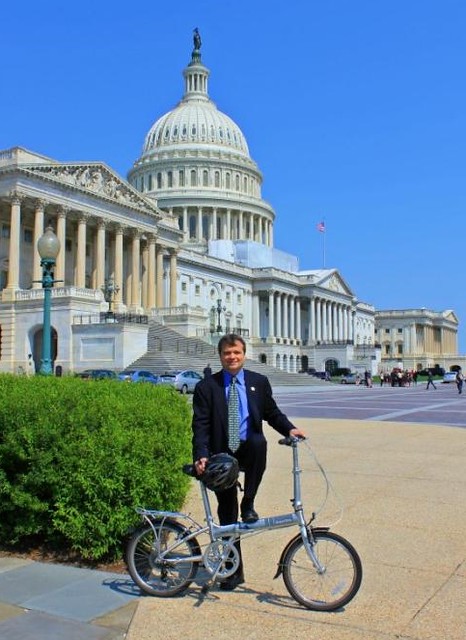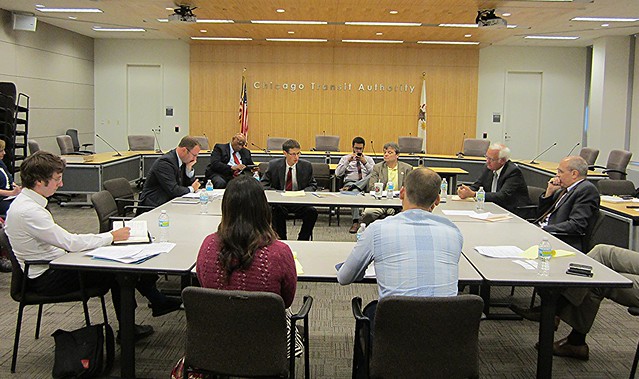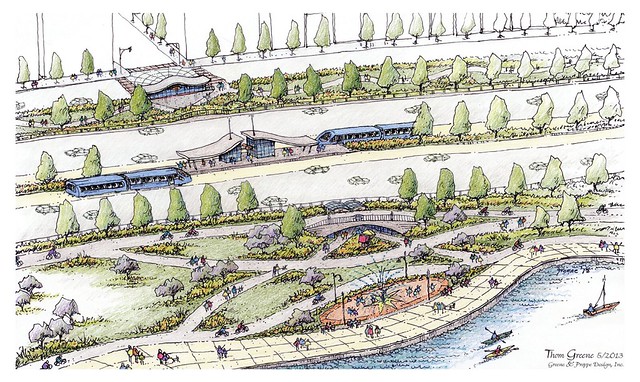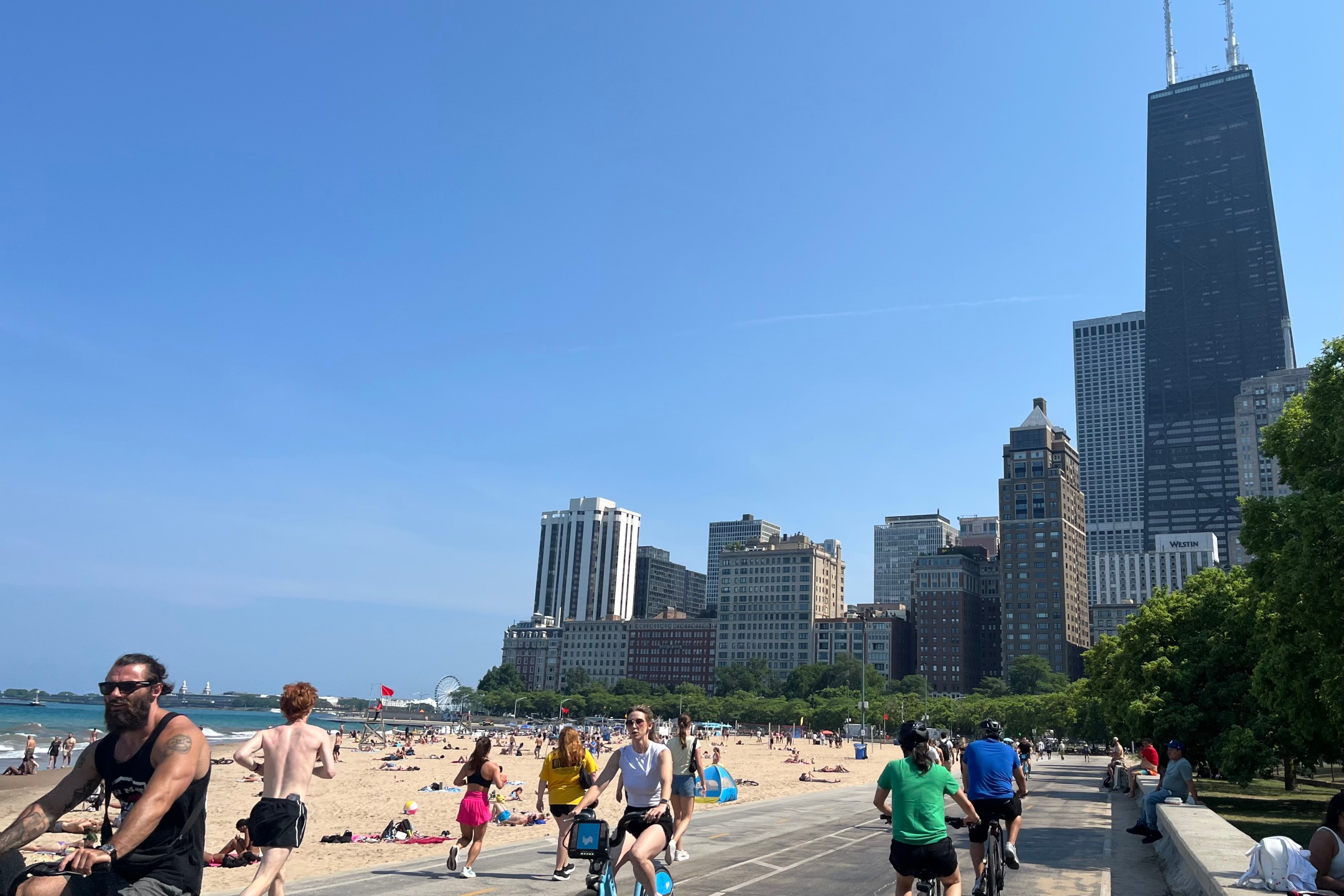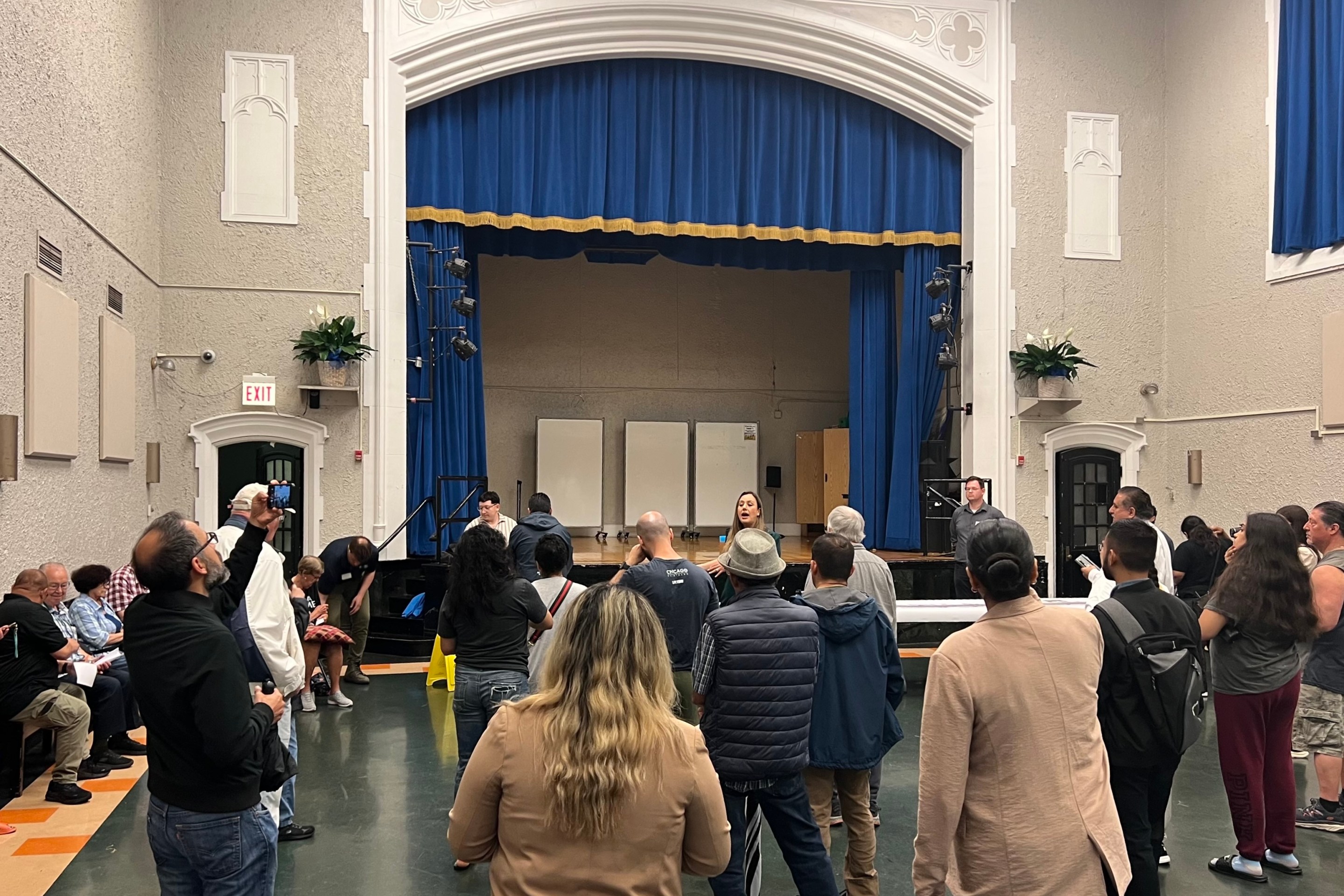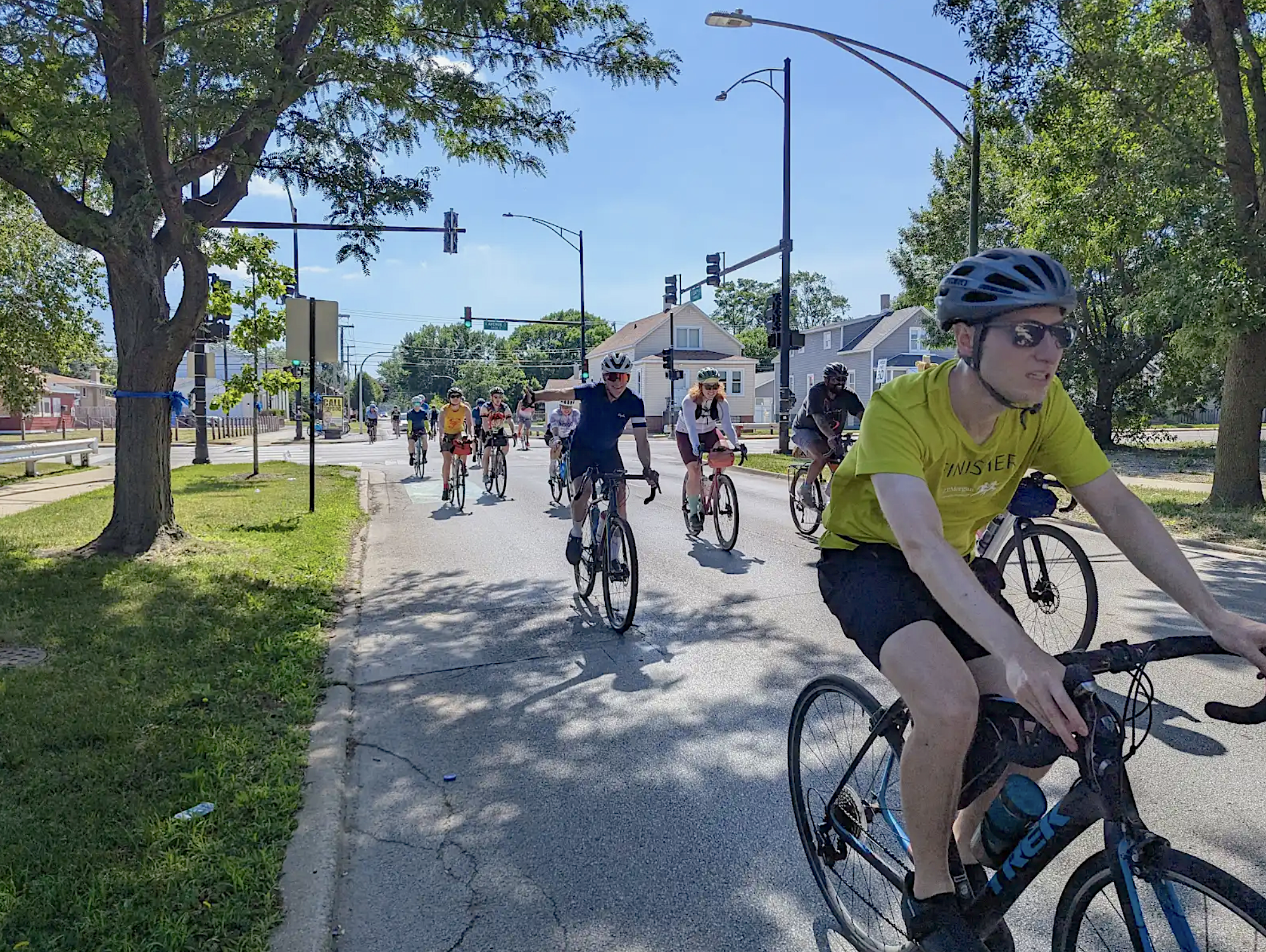Yesterday a number of heavy hitters in the local transportation scene showed up for a roundtable on sustainable transportation issues at the CTA headquarters hosted by U.S. Representative Mike Quigley (IL-05) and University of Illinois President Robert A. Easter. Quigley, whose district, formerly presided over by Rahm Emanuel, covers a large swath of Chicago’s North Side and a few inner-ring suburbs, sits on the House Appropriations Committee and the Subcommittee for Transportation.
Stephen Schlickman, executive director of the Urban Transportation Center at UIC, moderated the roundtable. In addition to Quigley and Easter, participants included representatives of the Illinois Department of Transportation, the Chicago Department of Transportation, Chicago Area Clean Cities Initiative, the Active Transportation Alliance, the CTA, and the Chicago Metropolitan Agency for Planning.
At the beginning of the meeting, reporters were given a chance to ask questions. I asked Quigley whether he supports the CTA’s plan to repurpose car lanes for bus rapid transit on Ashland Avenue, which runs though his district. While he seemed to support the idea, he said he’s been hearing concerns from residents about the street reconfiguration, which also includes the prohibition of most left turns. “A lot of my constituents aren’t dead-set against it,” he said. “I don’t see adamant opposition, just legitimate concerns that we need to address.”
Schlickman said BRT, along with other local initiatives like the Red Line rehab and the Divvy bike-share system, reflects a shift in priorities from from the car-centric recent past. “The challenge we have in Chicago and in our nation is that since World War II, well into the 1990s, we had a predominance of one mode of transportation policy and that was serving automobiles and truck traffic,” he said. “The tremendous growth that we had in our highway and road infrastructure certainly served our economy well but it really didn’t put us in the most sustainable position in the long run. It’s created a tremendous imbalance for one mode of transportation and we need to address that imbalance.”
Lee Crandell, director of campaigns for Active Trans, argued that infrastructure to make walking and biking safer and more convenient is inexpensive and could have a big influence increase mode share for sustainable transportation. He noted the success of Seville, Spain. In 2006, only 0.6 percent of all trips were made by bike, but after protected lanes were installed and a bike-share system was launched, mode share increased eleven-fold to 6.6 percent. “Shifting six percent might seem small and insignificant but these facilities are incredibly affordable and very often within reach,” he said. “They can have a huge impact on our health, on our environment, and on the congestion and safety of our streets.”
Quigley, who regularly rides a bicycle for transportation, noted that when his Chicago office participated in Active Trans’ Bike Commuter Challenge contest, several of his staffers said they didn’t feel comfortable riding on Chicago streets. “Two of my three trips today will be on a bike, and I don’t feel safe on most of the main streets either,” he said. He added that it’s ironic he and his wife feel more comfortable letting their two young daughters take the ‘L’ downtown by themselves at night than letting them ride bikes in their neighborhood.
Schlickman noted that Chicago is in the process of installing 100 miles of protected and buffered bike lanes by 2015. “The mayor has made a really good case for improving bike safety," he said. "That's good, because we really don’t want to lose the congressman to some idiot in a car.”
Quigley said he appreciates the extra security provided by bike lanes that offer physical protection from moving cars. I asked if he’s aware that IDOT has prohibited the installation of protected lanes on state roads in Chicago. Since the department wants three years of “safety data” on existing Chicago protected lanes, that means the very earliest they would lift the ban is 2015. “That I didn’t know but it doesn’t surprise me,” the congressman said. “I feel more comfortable with the protected lanes and I feel IDOT should change that.”
“We do like to rely on data to inform our policy decisions,” responded Mark Copeland from IDOT’s Office of Planning and Programming. “We did just finish the first round of community outreach on the state bicycle plan, which will be added as a chapter to our long-term plan. It will hopefully help the coordination with other state and local agencies regarding bicycle infrastructure. So we’ll see.”
During a discussion of the upcoming reconstruction of North Lake Shore Drive, CDOT Deputy Commissioner Scott Kubly argued that we shouldn’t miss this opportunity to transform the iconic roadway into one that reflects our aspirations of sustainability, not our auto-dominated past. “We need to take a good, long, hard look and not plan for the necessarily the road that we have but the road that we want,” he said. “We need to think about, what are the long-term trends going to be, where is the trend of less [vehicle miles traveled] going to take us 20 years from now when we actually start construction on [LSD], and what’s the road that we need at that point.”
Mike McLaughlin, CTA vice president of planning and federal affairs, said the goal of sustainable transportation is bigger than just moving people around the city more efficiently. “The end goal [of transportation improvements] is livability,” he said. “If we can move people faster [by sustainable means], they’re going to get out of their cars, and that’s … going to create a vibrant community. That is the end goal of sustainability. It’s not just reducing emissions, it’s making cities and communities more livable.”
Near the end of the roundtable, Sun-Times reporter Rosalind Rossi asked Quigley what he thought about the idea of licensing bicyclists as a way to raise revenue to help pay for bike lanes. “I wouldn’t rule it out,” he responded, adding that he supports licensing for pedicab operators, which led to some additional discussion of the topic among attendees. As a result, Rossi’s writeup of the wide-ranging roundtable focused almost solely on the licensing question. Licensing bicyclists is widely viewed as unnecessary additional bureaucracy that would discourage cycling.
Today I called Quigley and asked him to clarify his position on the subject. “I’m not for licensing bikes,” he said. “We need to get rid of the legal, structural and cultural restrictions that keep bikes from being used more widely. I don’t want to make people pay to ride a bike. If the bike community came to me and said they want licensing of bikes to raise revenue or prevent thefts, I would consider it. That’s the only reason I said I wouldn’t rule it out.”
I asked the congressman what his takeaway was from the meeting. “There’s a lot of good ideas out there that would make the region’s transportation system far more sustainable,” he said. “We just need the political will. As a member of the transportation subcommittee on appropriations, I want to bring these sustainable transportation ideas to the national level.”
